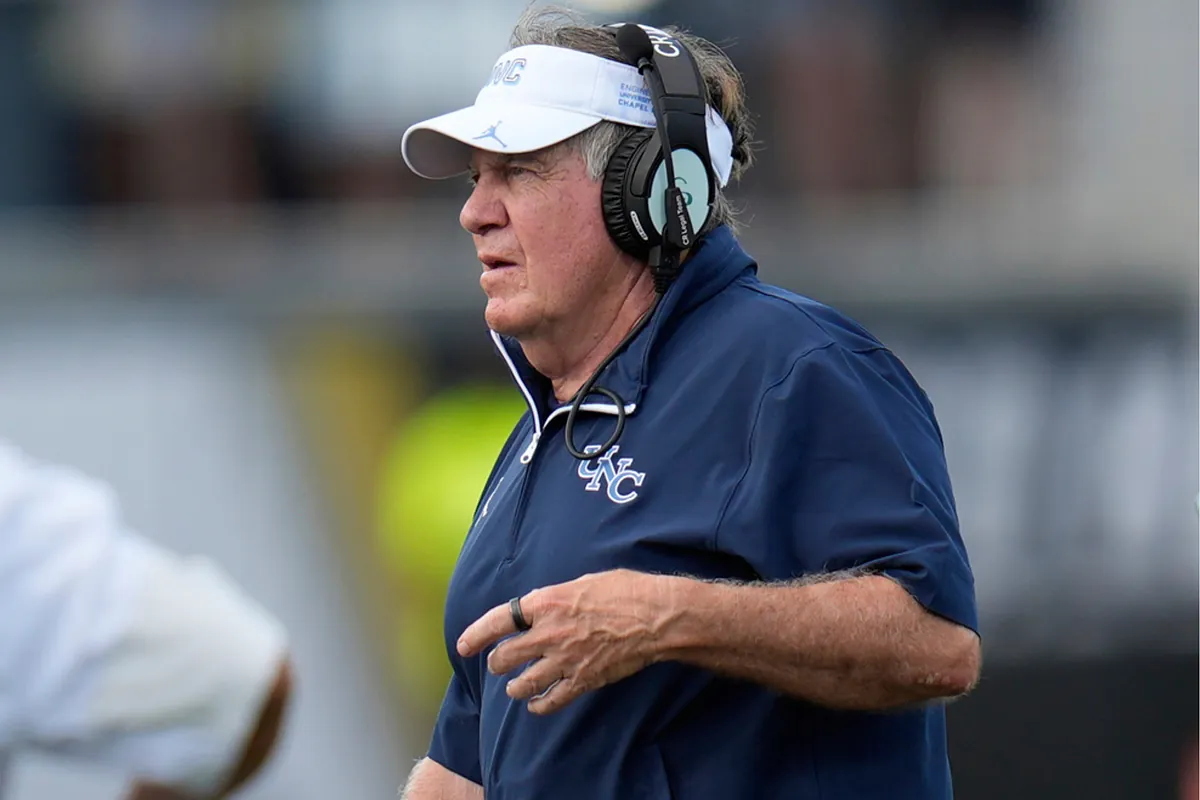
The honeymoon phase is over for Bill Belichick in Chapel Hill. After just five games into his first season, his arrival at the University of North Carolina has already met internal resistance.
In the wake of a 38-10 drubbing at home against Clemson, wide receiver Jordan Shipp made waves by rejecting the narrative that the program is still rebuilding. “I’m not here to rebuild, I’m here to win football games,” he declared. For some players, patience is wearing thin.
Under Belichick, the Tar Heels entered 2025 with lofty aspirations. The storied NFL coach had promised a program rebuilt with professional discipline and long-term vision.
But after losses to power conference foes TCU, UCF, and Clemson – by a combined margin of 120-33 – that blueprint is being questioned on the ground. The stadium felt the shift, too: many fans left as early as halftime against Clemson as the game spiraled.
Belichick, meanwhile, has defended his approach but acknowledged flaws. “Fundamentally, we’re not doing the wrong things, we’re just not doing them well enough,” he said, accepting that execution and concentration have been sore points.
He also added: “I’m not going to make changes in personnel based on a long-term vision … Guys that play the best deserve to play.”
A culture clash brewing
Shipp‘s pushback wasn’t isolated. The tension between Belichick‘s tempo and players’ urgency is becoming more apparent.
When UNC General Manager Mike Lombardi publicly labeled 2025 a “rebuilding” year in a letter to donors, it crystallized how the messaging was landing – perhaps in the wrong hands.
Belichick has insisted the program is honest with recruits about the process: “If you want to be a part of a program that’s being built, then we’re here for you.”
That statement, however, clashes with Shipp’s ethos. “Whatever they’re doing with the donors … that has nothing to do with me,” Shipp added. “I’m here to win football games and that’s what 100% of my focus is on.”
When players begin to filter internal debates into public statements, that signals deeper morale cracks. It’s not just words either – Belichick‘s response to the blowout revealed frustration.
He noted “two or three critical times” in which big plays and penalties tilted the game. He admitted coaching was partly to blame: “A lack of concentration … part of that is coaching, too.” He promised no radical overhaul, but instead incremental improvement: “We’re going to work through it … guys that play better will keep playing.”
Yet for a legend accustomed to commanding execution, working through might not satisfy a roster already accustomed to competing at the highest level.
High expectations, low level of achievement
Players in the room are feeling the optics. Expectations were high heading into Belichick‘s first ACC season, and many joined believing they’d compete immediately in the conference.
Instead, they’ve been handed metaphors of process and patience. Some now balk – because in college football, winters of rebuilding are less romantic when you’re trying to win in the fall.
Belichick‘s legacy gives him a cushion few first-year coaches enjoy. But college football operates on shorter timelines. When players, fans, and donors all start to question the pace, the integrity of the process comes under the microscope.
The question now is whether Belichick‘s famed discipline can corral the rising dissent – or if the tension between vision and wins will erode both momentum and unity.
In a program built on tradition, the 2025 season may end up defined by whether a coach used to contending can survive a reckoning from inside his own locker room.
This news was originally published on this post .







Be the first to leave a comment